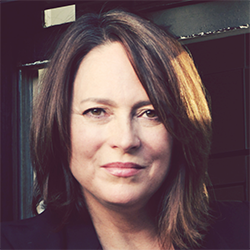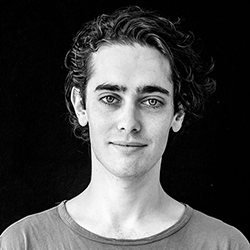
Michelle Carr
Postdoctoral Associate
University of Rochester
Sleep and Neurophysiology Laboratory
Bio: Michelle Carr, PhD, is a Postdoctoral Associate in the Department of Psychiatry, working in the Sleep and Neurophysiology Research Laboratory under the mentorship of Dr. Wilfred Pigeon. She previously completed postdoctoral training at the Swansea University Sleep Laboratory, working with Professor Mark Blagrove studying sleep neurophysiology, and consciousness and cognition during sleep. Michelle received her PhD in Biomedical Sciences from the University of Montreal in 2016, conducting research under the supervision of Dr. Tore Nielsen at the Dream and Nightmare Laboratory. Her research interests center on sleep psychophysiology, disturbed dreaming, and dream engineering (influencing dreams for mental health and wellbeing). She also translates dream science research to the public bywriting for Psychology Today.
Research: Sleep Psychophysiology. My work primarily involves human sleep research using polysomnographic (PSG) recording during overnight or nap periods, and quantitative analysis of EEG, including extraction of sleep features such as spindles and spectral power. One focus of my current work is assessing sleep and dream psychophysiology in the Deaf. My graduate and postdoctoral work has also focused on nightmares. Funding from the European Mind and Life Institute supported a study following temporal patterns of dreaming, emotional reactivity, and sleep quality in frequent nightmare sufferers, including measures of Near Infrared Spectroscopy. I also participated in an international Nightmare Treatment Symposium in 2016 for which a consensus paper was published in 2018; and published a theoretical paper comparing diathesis-stress to differential-susceptibility approaches to understanding and treating nightmares. Dream Engineering. With colleagues at MIT, we are developing a network of researchers who work on the theme of dream engineering—applying technology and manipulating sleep and dreams to benefit memory, creativity, wellbeing, or even physical health and rehabilitation. We recently published a theoretical review on the topic and co-organized the Dream Engineering Workshop hosted at MIT Media Laboratory in January 2019, and guest edited a Special Issue on Dream Engineering with the journal Consciousness and Cognition. With colleagues at Swansea University, I also conducted a study on inducing lucid dreams via sensory stimulation; Lucid dreams – where one is aware and in control of their dream while asleep – are an important and novel avenue of study for sleep medicine and nightmare treatment. Our published findings show we effectively induced lucid dreams in 50% of participants within one 3-hour session.

Pattie Maes
Professor
MIT Media Lab
Bio: Pattie Maes is a professor in MIT's Program in Media Arts and Sciences. She runs the Media Lab's Fluid Interfaces research group, which investigates how devices can play a more positive and supportive role in people's lives. Coming from a background in artificial intelligence and human-computer interaction, she is particularly interested in the topic of cognitive enhancement, or how immersive and wearable systems can actively assist people with memory, attention, learning, decision making, and wellbeing. Maes is the editor of three books, and is an editorial board member and reviewer for numerous professional journals and conferences. She has received several awards: Fast Company named her one of 50 most influential designers (2011); Newsweek picked her as one of the "100 Americans to watch for" in the year 2000; TIME Digital selected her as a member of the “Cyber Elite,” the top 50 technological pioneers of the high-tech world; the World Economic Forum honored her with the title "Global Leader for Tomorrow"; Ars Electronica awarded her the 1995 World Wide Web category prize; and in 2000 she was recognized with the "Lifetime Achievement Award" by the Massachusetts Interactive Media Council. She has also received an honorary doctorate from the Vrije Universiteit Brussel in Belgium, and her 2009 TED talk on "the 6th sense device" is among the most-watched TED talks ever.In addition to her academic endeavors, Maes has been an active entrepreneur as co-founder of several venture-backed companies, including Firefly Networks (sold to Microsoft), Open Ratings (sold to Dun & Bradstreet) and Tulip Co (privately held). Prior to joining the Media Lab, Maes was a visiting professor and a research scientist at the MIT Artificial Intelligence Lab. She holds a bachelor's degree in computer science and a PhD in artificial intelligence from the Vrije Universiteit Brussel in Belgium.
Research Interest: My inter-disciplinary research group takes inspiration from the literature in Psychology and Neuroscience to design and invent new systems that assist people with issues such as memory, learning, and well-being. I am especially interested in the role that sleep and dreaming plays in these cognitive processes and hope to develop technology to influence dreams so as to strengthen learning, influence memory, and stimulate creative thinking.

Adam Haar Horowitz
PhD Student
MIT Media Laboratory Fluid Interfaces Group
Bio: I’m a PhD student in MIT Media
Lab's Fluid Interfaces Group. My
work aims to augment human awareness, translating
advances in neuroscience into design of interventions and experiences. I
believe
technology can show us arts of
ourselves that remain otherwise invisible, opening doors
to introspection,
wellness
and wonder.
I have a background as a neuroscience researcher at MIT's McGovern Institute for
Brain Research studying Mindfulness
Meditation and Mind-Wandering with Prof. John
Gabrieli, as a Research Affiliate at
Harvard
metaLAB, and as an
Artist-Scientist at the Marina Abramovic
Institute.
My work has been presented in a
range of artistic and scientific
spaces, Cannes Film Festival, GoogleX, SXSW, National Academy of Sciences, Red Bull
Station, SESC Pompeia, 60 Minutes,
Transmediale, the Boston Museum of Fine Arts...
Research Interest: I’m very interested in how brain science can expand to interact with art, technology and policy. The organized understanding of the self is fertile territory for those guiding experience (i.e. artists), those guiding behavior (i.e. policymakers, technologists), and those guiding introspection (i.e. therapists, citizen scientists, and you). Until last year I helped lead two communities in Boston which aimed to expand the acceptable territory of inquiry for science and tech: MIT Hacking Arts and Consciousness Hacking. Now I’m most excited about spending time bringing my tools to other labs for guiding dreams and nightmare treatment, working on neuroscience based prison policy change, and bridging art and neuroscience in a form that goes beyond ornamental.

Judith Amores
PhD Student
MIT Media Laboratory Fluid Interfaces Group
Bio: Judith is a PhD student and research assistant in the Fluid Interfaces group, MIT Media Lab. She graduated from MIT with a master's in Media Arts and Sciences and helped run VR/ARatMIT as a co-president. She holds a multimedia engineering degree from LaSalle University, Barcelona, Spain and has a computer science background and design focused on UX, UI and filming. She previously interned as a Human Computer Interaction (HCI) researcher at Microsoft Research and at R&D at URL Barcelona developing Augmented and Virtual Reality experiences and at the Google Creative Lab as a Creative Technologist. Her grants, awards, and publications include over 27 peer-reviewed research papers, two patents, a 2016 Facebook Graduate Fellowship, 2015 LEGO Foundation sponsored research, and she was a 2016 Finalist in the Innovation by Design Awards. She also received the 2017 Scent Innovator Award by the Cosmetic Executive Women and IFF (International Flavors and Fragrances).
Research Interest: Her research is in the field of human-computer interaction (HCI), she is interested in consciousness and the intersection between Engineering, Design and Behavioral and Physiological Psychology. Her research vision is to create technology that can interface with our unconscious mind for psychological well-being instead of for marketing purposes. Adopting insights from multidisciplinary fields, she aims to create subtle, sometimes unnoticeable technology that improves our well-being and augments our memory through nontraditional interfaces (such as smell) and that can be used during the day and while sleeping. She developed olfactory wearables, Virtual and Augmented Reality experiences that monitor physiological information of the user and that dynamically release scent or change their audio-visuals to reduce anxiety, enhance sleep quality and learning, with the ultimate goal of helping us be more mindful of our mental state, emotions, biases, and behavior.